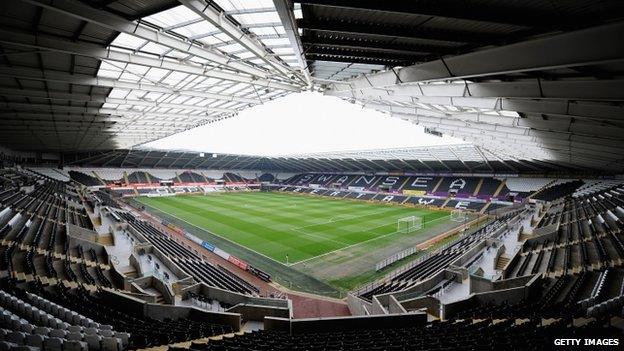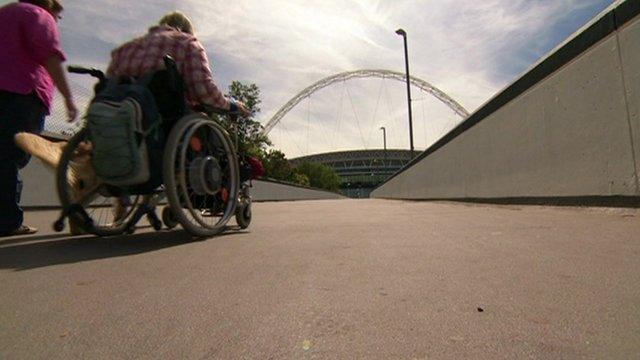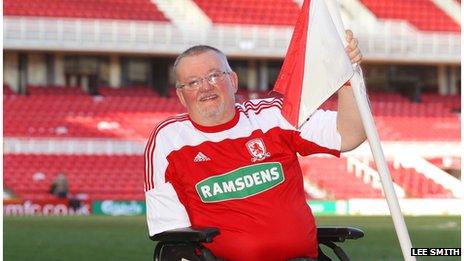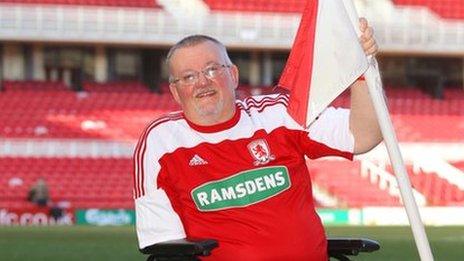Swansea and Cardiff top table for providing disabled spaces
- Published

Swansea City provide more than the recommended number of spaces for disabled fans
Wales' two Premier League clubs are leading the way on providing spaces for disabled supporters at matches, figures suggest.
Swansea came top while Cardiff were third in the survey, which looked at wheelchair spaces for disabled fans.
The research comes as the minister for disabled people called for action over a "woeful" lack of support for disabled spectators in British football leagues.
Mike Penning has written to every professional club in the country.
"I'm blowing the whistle on discrimination against disabled people by football club bosses," he said.
"Football is part of Britain's heritage - it runs through our blood - so the fact clubs across our land are putting up barriers preventing a fifth of our population from enjoying the sport is a complete disgrace."
He said nearly half of Premier League clubs did not offer even half the wheelchair spaces recommended for disabled people, based on the research by the Level Playing Field charity which represents disabled sports fans.
But it was good news in Wales where Swansea and Cardiff were two of only three clubs that offered more than the suggested number of spaces.
Oona Smith, chair of the Swansea City Football Club Disabled Supporters' Association, said: "At Swansea City we are very, very proud to see the results of the survey.
"Having a new stadium has helped but the club has moved to catch up with the success on the pitch.
"We have got a disability officer who looks after the disability issues for the club and we've also created the disabled supporters' association about 10 months ago."
She said Swansea had 252 wheelchair spaces plus a further 252 seats for helpers.
Guidelines on how football clubs in the UK should cater for disabled spectators have been in place for 10 years.
The Accessible Stadia Guide, external sets out minimum standards that all new grounds are recommended to meet for disabled fans.
The number of wheelchair spaces a stadium should provide is based on its capacity.
Clubs with older stadiums also have legal obligations over access.
- Published16 July 2013

- Published8 March 2013

- Published26 October 2012
